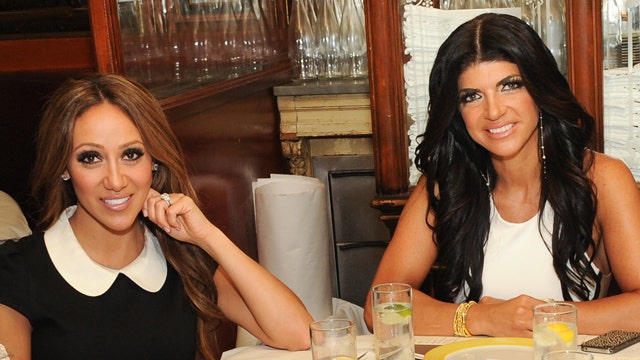Are kids okay on reality shows?
Minor children now part of the drama on 'Real Housewives of New Jersey'
“The Real Housewives of New Jersey” returned this week and— as usual—the show focused on the rift between the feuding Giudice and Gorga families, but this season the couples’ minor children are being used as a major part of the drama.
In the premiere episode, Teresa Giudice’s eldest daughter Gia shares her opinion on her mom’s feud with Melissa Gorga. At one point, the 11-year-old girl even types a text message for her mother to send to Gorga during an argument.
The children’s involvement in the fighting had some viewers, and experts, raising eyebrows.
“It’s one thing to have a kid on a reality show being a kid, you know just letting them play around … When you have [kids] do plot points that’s when you have to get a little worried about it because someone’s whispering in their ears and saying, ‘it would be a good idea to say this,’” reality television producer Ethan Meyer told FOX411’s In the Zone. “It’s not something I would feel comfortable doing but it’s something obviously that happens and it’s something obviously the parents are okay with.”
Pop culture watcher Valerie Greenberg added that the kids were a huge part of the premiere episode, but not solely in a negative way.
“Now while I do think some of the young kids were exploited in this episode I want to applaud Jacqueline [Laurita] who shared her story of her young son and how her family’s coming together to help him with autism and this can only have a positive impact on society because it will essentially create awareness of autism,” Greenberg said.
She argued that at the end of the day, it’s up to the parents whether or not to include their kids in the insanity that is reality TV.
“We have to remember that reality television is most definitely scripted and these scenes are set but it makes for good television and that’s what people want to watch, and at the end of the day we have to hope that the mothers make good choices for their kids,” Greenberg said.
But Meyer said he worries for kids whose parents choose to expose them to the reality TV lifestyle.
“I think the problem is kids having parents who think it’s OK for the kids to be on a reality show,” he said. “I don’t know if there’s a cut off per se, I think it’s up to each individual parent. I think some parents do it a lot better than others.”
And although kids add a cute factor to TV, Greenberg cautioned that growing up in front of cameras could have negative long-term effects on the kids.
“Something I want to bring up is we don’t we didn’t have reality television 10 years ago so we don’t know the effects and outcomes that will happen 10 years from now. We can only look at childhood stars and see how they’ve been affected,” she said.
Meyer said his biggest concern is that the children will be criticized by viewers.
“Once it goes out in the world that’s when the problems come up there is no way to protect the kids entirely from the perception of the world so I think that’s the scary part,” he said.
Greenberg said it’s up to the parents to shield their children from the negative aspects of life in the spotlight.
“It’s a fine line when you’re dealing with reality television because we don’t really how much, once you sign the dotted line… control you’re going to have. I just hope that the parents keep their children’s best interest in mind.”







